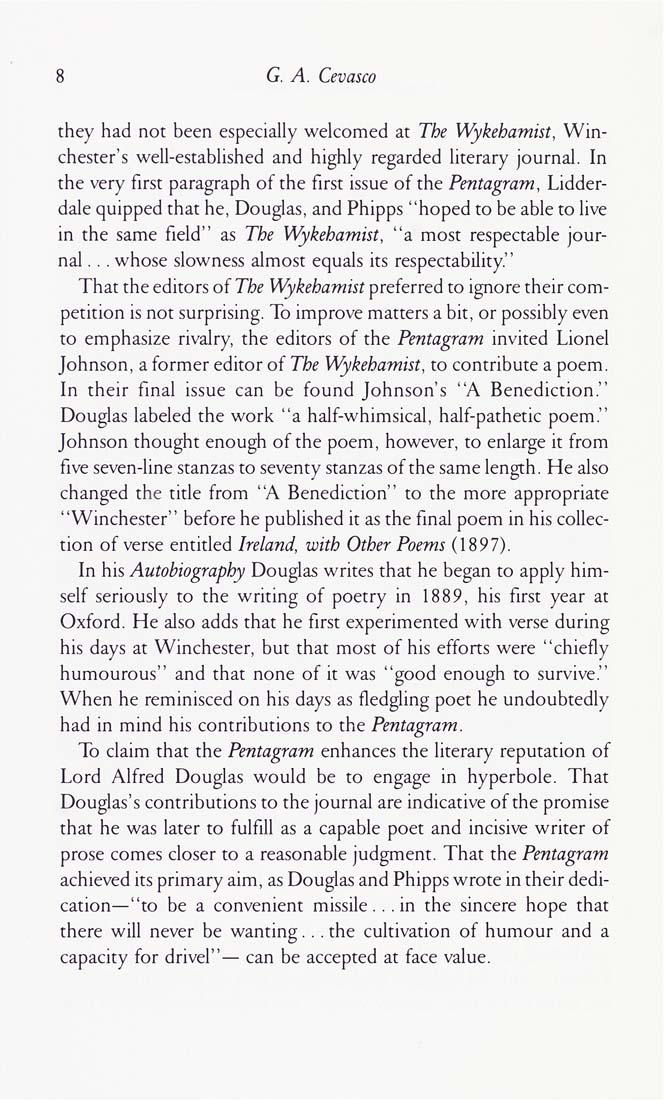Columbia Library columns (v.39(1989Nov-1990May))
(New York : Friends of the Columbia Libraries. )
|
||
|
|
|
|
| v.39,no.1(1989:Nov): Page 8 |

8 G. A. Cevasco they had not been especially welcomed at The Wykehamist, Win¬ chester's well-established and highly regarded literary journal. In the very first paragraph of the first issue of the Pentagram, Lidder¬ dale quipped that he, Douglas, and Phipps "hoped to be able to live in the same field" as The Wykehamist, "a most respectable jour¬ nal... whose slowness almost equals its respectability." That the editors of The Wykehamist preferred to ignore their com¬ petition is not surprising. To improve matters a bit, or possibly even to emphasize rivalry, the editors of the Pentagram invited Lionel Johnson, a former editor of The Wykehamist, to contribute a poem. In their final issue can be found Johnson's "A Benediction." Douglas labeled the work "a half-whimsical, half-pathetic poem." Johnson thought enough of the poem, however, to enlarge it from five seven-line stanzas to seventy stanzas of the same length. He also changed the title from "A Benediction" to the more appropriate "Winchester" before he published it as the final poem in his collec¬ tion of verse entitled Ireland, with Other Poems (1897). In his Autobiography Douglas writes that he began to apply him¬ self seriously to the writing of poetry in 1889, his first year at Oxford. He also adds that he first experimented with verse during his days at Winchester, but that most of his efforts were "chiefly humourous" and that none of it was "good enough to survive." When he reminisced on his days as fledgling poet he undoubtedly had in mind his contributions to the Pentagram. To claim that the Pentagram enhances the literary reputation of Lord Alfred Douglas would be to engage in hyperbole. That Douglas's contributions to the journal are indicative of the promise that he was later to fulfill as a capable poet and incisive writer of prose comes closer to a reasonable judgment. That the Pentagram achieved its primary aim, as Douglas and Phipps wrote in their dedi¬ cation—"to be a convenient missile. . .in the sincere hope that there will never be wanting. . . the cultivation of humour and a capacity for drivel"— can be accepted at face value. |
| v.39,no.1(1989:Nov): Page 8 |







